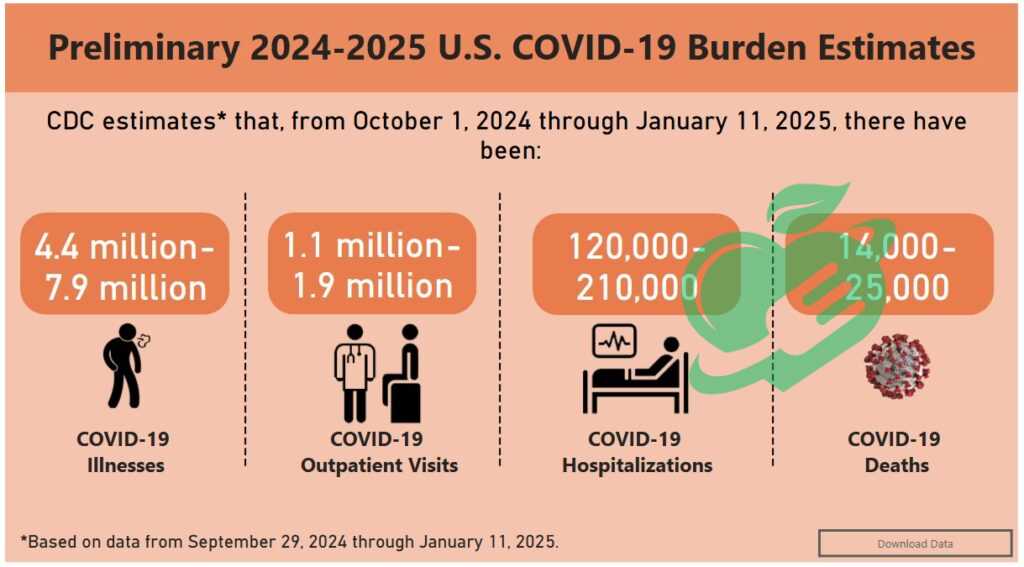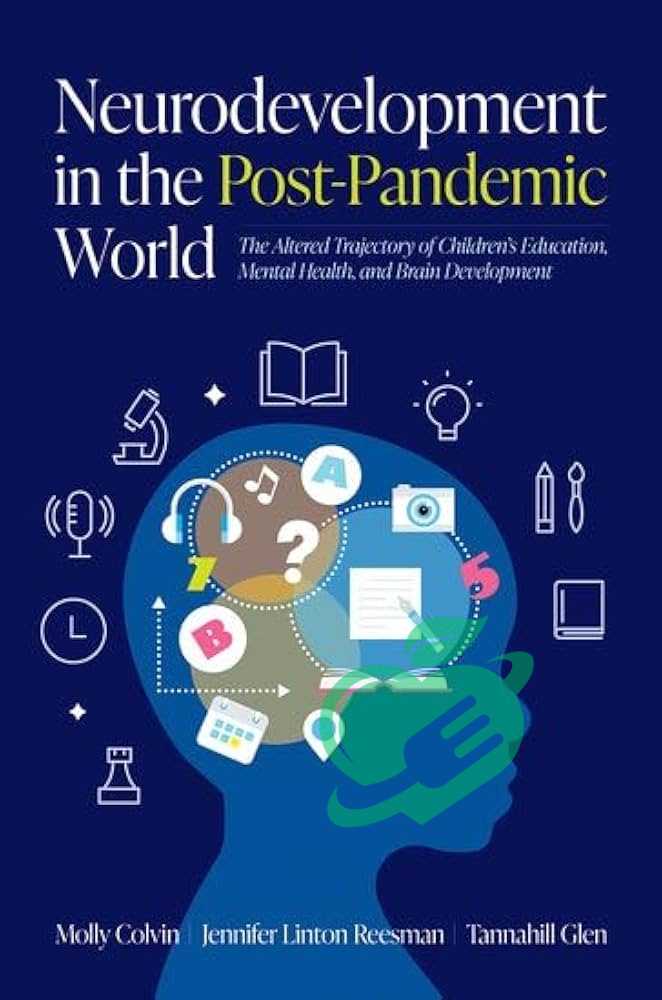Shaping Tomorrow: Building a Better Future Post-COVID in 2025

The Impacts of COVID-19 on Society
The COVID-19 ( COVID-2025) pandemic has changed our lives, affecting everything from daily routines to long-term plans. Looking at these effects helps us learn important lessons for bouncing back in the future.
Economic Disruptions
The economy took a big hit during the pandemic. Industries like hospitality and travel faced shutdowns that led to a lot of layoffs and lost income. You hear stories about small business owners who had to switch to takeout and struggled to keep their staff while keeping people safe.
- Big jumps in unemployment rates
- Problems in the supply chain
- Shifts in how people spend their money
Changes in Healthcare Systems
Healthcare had to adapt quickly. Hospitals that were swamped at first had to reorganize to treat COVID-19 patients while still taking care of non-COVID issues. Telehealth services took off, letting folks talk to their doctors from home.
- More investment in healthcare facilities
- Growth in digital health options
- Focus on preventive care and community health
Social Behavioral Shifts
We saw social norms shift with people getting used to physical distancing and wearing masks. Online gatherings became something we all did, creating new traditions like family game nights over Zoom.
- More focus on mental health support
- Stronger community bonds
- New ideas about work-life balance
These changes have reshaped our society and will keep on evolving.

COVID-2025: Learning from the Pandemic
As we adjust to the new way of life thanks to COVID-19, we’re picking up valuable lessons about resilience, innovation, and working together. Thinking about these changes helps us build a stronger community for the future.
Resilience and Adaptability
The pandemic showed just how resilient people and businesses can be. Many quickly shifted to remote work, showing how well they can adapt in tough times. Like that gym owner who moved to online classes to keep his clients engaged while the gym was closed.
- Quick responses to changing situations
- More focus on mental health and wellness
- Better community support networks
Innovation and Technological Advancements
Innovation took off during the pandemic, bringing technology into the spotlight. From touchless payments to better digital collaboration tools, these changes are reshaping how we live and work.
- Growth in online shopping solutions
- More telehealth platforms
- Better remote communication tools
Global Collaboration
COVID-19 emphasized how crucial global teamwork is. Scientists teamed up worldwide to develop vaccines and treatments, sharing data and resources in record time.
- Collaborative efforts to create vaccines
- International health organizations are pulling together
- Shared research projects
These experiences not only help us craft plans but also create a sense of purpose and unity as we tackle challenges together.
Read also: Unlocking the Secrets of Alzheimer’s and Diabetes 3: A Comprehensive Guide.
COVID-2025: Building a Sustainable Future
Armed with the lessons learned from the pandemic, we now have a chance to build a sustainable future. There are great opportunities for us to align our efforts with goals that center on health, the environment, and community well-being.
Sustainable Development Goals
The United Nations’ Sustainable Development Goals offer a roadmap to tackle global issues, promoting health, equality, and protecting the environment. Like that community in my area that organized a recycling campaign to clean up while getting residents involved in sustainability.
- Working on poverty reduction
- Promoting gender equality
- Access to clean water and sanitation
Climate Change Mitigation
Mitigating climate change is now a must, not just an option. The temporary drop in pollution during the pandemic reminded us that we can positively impact the environment. Efforts like planting trees and renewable energy projects are making progress.
- Switching to renewable energy
- Reducing carbon footprints
- Encouraging sustainable farming practices
Reshaping Urban Planning
City planning is changing to include more green spaces and better public transport. Cities are adding bike paths and improving transit systems to cut carbon emissions. A neighborhood transformation that adds parks and walking paths boosts quality of life and fosters community.
These forward-thinking approaches will help us create strong communities and set the stage for a better relationship between people and the planet.

Healthcare Transformation Post-COVID-2025
As we look to build a sustainable future, our healthcare system is changing a lot. The pandemic pushed for improvements that will better care for everyone.
Enhancing Healthcare Infrastructure
A big focus has been on improving healthcare infrastructure. Hospitals are upgrading facilities to handle not just current patients but future public health needs as well. A nearby hospital even expanded its emergency department to respond better.
- Upgrading technology in hospitals
- Increasing emergency care capacity
- Better management of medical supply chains
Telemedicine Advancements
Telemedicine took off, making it easier for folks to get care from home. A friend of mine who was unsure about video calls found them super helpful during lockdown since they allowed for quick visits without risk of exposure.
- More virtual doctor visits
- New telehealth platforms
- Integration with health records
Mental Health Support Systems
The pandemic highlighted how important mental health support is. Many communities stepped up to provide virtual counseling and peer support, recognizing how isolating it can be.
- More mental health hotlines
- Community support networks
- Wellness programs at work
These changes show a more comprehensive approach to healthcare, balancing immediate needs with long-term gains for a healthier, more resilient society.
COVID-2025: Economic Recovery and Employment
As healthcare evolves and we adjust to new norms, the focus shifts to economic recovery and jobs. Transitioning to a post-pandemic economy brings challenges but also chances for growth.
Job Market Trends
The job market shows signs of recovery, with some sectors hiring rapidly. A buddy in IT told me his company is growing its team to support more remote services, reflecting the high demand for tech workers.
- Growth in tech jobs
- More hiring in healthcare and delivery
- Continued growth in the gig economy
Small Business Support
Local small businesses play a big role in the community, and there are many initiatives to help them recover. Local governments and organizations are providing grants and resources. A family-run bookstore near me got a grant that let them improve their online presence and start delivery.
- Access to financial support for businesses
- Community grants for locals
- Training programs for new entrepreneurs
Investment Opportunities
With the economy stabilizing, new investment chances are popping up. Investors are looking for sustainable businesses that match new consumer trends.
- Growth in renewable energy
- Rise of online shopping platforms
- Tech startups focused on innovative solutions
These economic shifts help us build resilience and create a stable, dynamic workforce as we reconnect and redefine our roles in this new economic landscape.
Read also: HIV Cure Breakthrough: What You Need to Know.

COVID-2025: Nurturing Education and Skills Development
As the economy bounces back, focusing on education and skills development is crucial. The pandemic showed us the gaps in our education systems and pushed us to rethink how we prepare the future generation.
Educational Technologies
One big leap has been in educational technologies, changing how students access learning materials. My cousin who teaches high school used online platforms to make learning interactive during lockdowns. It really showed how digital tools can make education more accessible.
- Using Learning Management Systems (LMS)
- Rise of educational apps and platforms
- Better access to online resources
Skill-Based Learning
There’s a growing focus on skill-based learning as teachers see the need to prepare students for real job markets. I went to a workshop where local businesses offered internships to connect classroom work with real-world experience.
- More emphasis on vocational training
- Hands-on projects and apprenticeships
- Working with industry professionals
Future-Ready Curriculum
To stay relevant, schools are updating their curricula to reflect what’s being asked in today’s jobs. This means including social-emotional skills, critical thinking, and flexibility in the lessons.
- Focus on STEAM education (Science, Technology, Engineering, Arts, and Math)
- Interdisciplinary studies
- Flexible curriculum adjustments based on job trends
As we nurture education and skill development, we’re paving the way for a workforce ready to thrive in an ever-changing landscape.
Read also: Banana Tree Benefits: Why You Should Grow One Now.
COVID-2025: Strengthening Global Health Security
While we focus on education and skills, we also need to strengthen global health security. The lessons from the pandemic show us that we need collaboration and preparation to tackle future health issues effectively.
Preparedness for Future Health Crises
Preparedness is key to reducing the effects of future health crises. Steps like creating rapid response teams are a good start. A colleague mentioned that her organization practices emergency responses so that everyone knows their roles in an outbreak.
- Setting up quick response frameworks
- Investing in public health infrastructure
- Improving early detection systems
Vaccine Equity and Distribution
Vaccine equity has become a hot topic, showing how access to lifesaving vaccines varies across regions. Organizations like COVAX demonstrate how important global cooperation is for making sure everyone can get vaccines. For instance, a village near me received vaccine supplies that helped prevent serious outbreaks.
- Ensuring vaccines reach underprivileged communities
- Addressing distribution challenges in remote areas
- Promoting vaccine awareness and education
International Health Regulations
International Health Regulations (IHR) are crucial for keeping global health secure. Strengthening these rules can improve cooperation between countries, so we can all respond better to health emergencies. Countries need to work together, sharing data and resources for a safer world.
- Improving coordination between nations
- Establishing clear communication
- Creating a culture of trust and transparency
By focusing on these areas, we can build a stronger global health system ready to tackle future challenges.
Read also: COVID XEC Symptoms: What You Need to Know.

Conclusion: A Collective Vision for a Better Tomorrow
Reflecting on our journey through the pandemic, it’s clear that moving forward calls for a shared vision for a better tomorrow. Each challenge we’ve faced has turned into an opportunity for growth, innovation, and working together.
A Unified Approach
The pandemic showed us how important it is to unite in solving global problems. Through a friend who volunteers in community health, I’ve seen how working together can lead to real change. Local volunteers teamed up for food drives that helped those struggling while bringing people closer together.
- Highlighting cooperation among governments and organizations
- Building partnerships in communities
- Involving everyone in the conversation
Resilient Mindset
Having a resilient mindset is critical for facing the uncertainties ahead. People and organizations must stay flexible and open to change as we push towards sustainability, health security, and a shared economic revival.
- Encouraging a culture of learning
- Supporting innovation and adaptability
- Promoting mental health and wellness
Empowering Future Generations
The focus on empowering future generations through education and skills development is super important. What we do today will help mold tomorrow’s leaders.
In closing, the lessons from our past can guide us to a future that is cooperative, resilient, and sustainable. Together, we can create a world that not only recovers but truly thrives, ensuring a healthier tomorrow for all.
Latest studies on the covid 2025
In the four-week reporting period spanning from December 9, 2024, to January 5, 2025, the weekly percentage of positive PCR tests for SARS-CoV-2 decreased from 8.5% in the first week to 8.1% in the final week. This data was collected through integrated sentinel and systematic virological surveillance as part of the Global Influenza Surveillance and Response System (GISRS). Throughout this timeframe, an average of 59,114 samples were tested for SARS-CoV-2 each week across 108 countries. 1.
Latest World Health Organization updates on the covid 2025
The World Health Organization is observing various SARS-CoV-2 variants, which include one variant of interest (VOI) named JN.1, along with seven variants under monitoring (VUMs). During the first week of 2025, JN.1, the VOI, represented 15.0% of sequence data. The VUMs XEC and LP.8.1 are continuing to rise in prevalence, representing 44.8% and 4.7%, respectively, of sequences in that same week, and are currently the only variants being monitored that are increasing in prevalence. The other VUMs are experiencing a decline in prevalence. 1.
Deaths from the covid 2025
During the 28 days from December 9, 2024, to January 5, 2025, 24 countries (10%) reported deaths from COVID-19, while 79 countries (34%) recorded COVID-19 cases worldwide. The data indicated that there were over 161,000 new cases reported in this timeframe, which shows a 21% decline in reported cases. Concurrently, approximately 3,300 new deaths were registered, indicating a 14% rise in new fatalities compared to the prior 28-day period (November 11 to December 8, 2024). 1.
Hospital admissions due to the covid 2025
In the same timeframe, at least once, 37 countries (16%) reported hospitalizations, while 28 countries (12%) reported admissions to intensive care units (ICUs). According to the available data, there were roughly 14,600 new hospitalizations and 1,000 new ICU admissions recorded. The number of new hospitalizations rose by 10%, while ICU admissions remained stable among the countries that consistently reported this information during the past and prior reporting periods. 1.
To stay up to date on the latest health and nutrition developments in the United States, visit our website, Power Up Your Health, and gain more tips and solutions for a healthier life.



